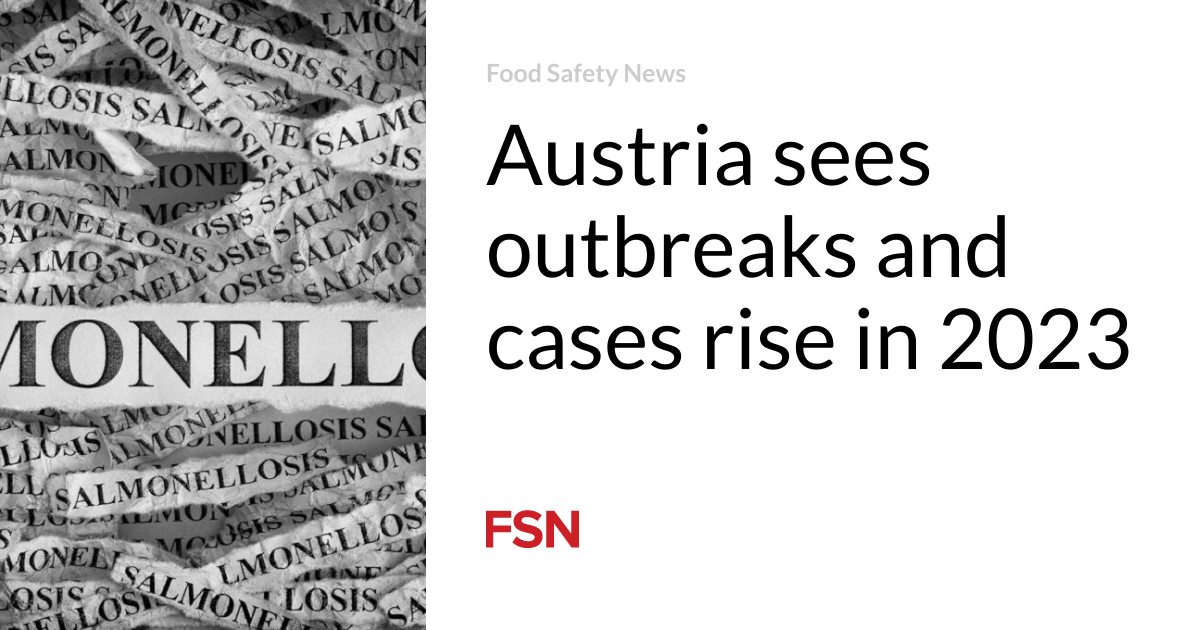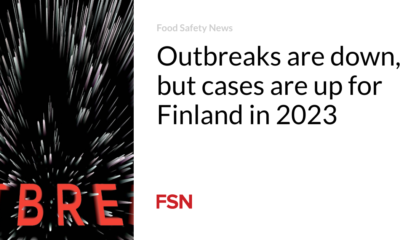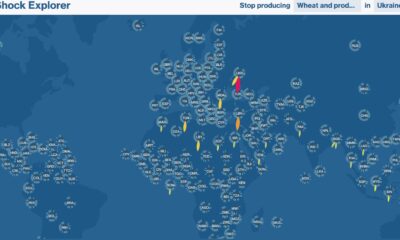Food
Austria sees outbreaks and cases rising in 2023

Austria reported more outbreaks and related diseases in 2023 than the previous year.
A total of 42 foodborne outbreaks were recorded, 14 more than in 2022. Also, 222 people were affected, compared to 128 in 2022.
38 people were hospitalized due to outbreaks and there was one death. In the largest outbreak, 32 people became ill. 25 incidents were classified as household outbreaks and 20 as general epidemics. Ten outbreaks of Salmonella and five Campylobacter were linked to travel abroad.
Data from the Austrian Agency for Health and Food Safety (AGES) shows that Salmonella was the most common cause, increasing from 11 outbreaks in 2022 to 21 outbreaks, 141 cases and one death in 2023.
Cross-border events
Campylobacter came in second with 12 outbreaks and 26 cases, followed by five STEC outbreaks with 12 infections, two norovirus outbreaks with 138 sick people and one each of Listeria monocytogenes and Yersinia enterocolitica, which affected three and two people respectively.
Three major outbreaks in 2023 were caused by different species of Salmonella Enteritidis. A total of 31 people became ill in Austria, 10 of whom ended up in hospital. One person died. This was part of a multi-country outbreak linked to chicken meat from Poland.
One outbreak from 2022 that sickened four people continued in 2023 with another patient. The pathogen was Salmonella Senftenberg and the infections were caused by tomatoes, probably from Morocco. This was also an outbreak in multiple countries.
Another cross-border outbreak was due to Salmonella Strathcona. In Austria, 24 people were involved, four of whom had to be hospitalized. The suspected food was cherry tomatoes from Italy.
One Listeria outbreak affected three people, two of whom required hospitalization. The food vehicle was pork from an Austrian producer.
Findings of the audit program
The Austrian authorities have also published results of several focus control campaigns. One tested sesame pastes and nut butters for Salmonella.
In 2022 and 2023, a number of Salmonella findings were reported in sesame products and nut butters via the RASFF portal. A total of 31 samples from all over Austria were tested, but no Salmonella was detected.
Another targeted action involved 87 infant and follow-on formula products. Selected contaminants and residues such as heavy metals, 2-monochloropropanediol and 3-MCPD, chlorate, perchlorate, polycyclic aromatic hydrocarbons (PAHs), mycotoxins and pesticides were assessed. Microbiological tests have also been carried out but have shown no problems.
A total of 51 samples of infant formula and 36 samples from the follow-on formula category met the requirements. A small amount of a substance used in disinfectants and cleaning products was found in one sample of infant formula. Low levels of chlorate were found in another infant formula.
Lead was detectable in 32 samples and cadmium in 25 samples at levels below legal limits. Traces of nickel were detected in 65 samples and arsenic in six samples.
A separate campaign targeted meat products from direct sellers and small businesses. 71 samples from across the country were examined. A previous campaign showed a 9 percent non-compliance rate.
Seven of the 71 samples in the final check were flagged. Low levels of Listeria monocytogenes were detected in two cases. Other samples were contaminated with polycyclic aromatic hydrocarbons.
One sample of poultry sausage was suspected of being adulterated because it had a significantly higher fat content than permitted.
(To sign up for a free subscription to Food Safety News, click here.)











